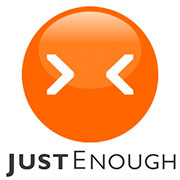
Relationships are the lifeblood of any business. As a small business achieves the success of a growing network, the question often turns to how to choose the best system for managing the information captured across multiple devices, digital files and scribbled notes. A contact management systems or full customer relationship management (CRM) software is the best way to keep tabs on the relationships contributing to the growth of the business.
When preparing to make an investment in such a system, company leaders should ask, “What do I want to get out of it?” For example, full CRM software differs from basic contact management systems in that it enables you to assign prospective clients to sales staff, monitor progress and determine the results of marketing efforts.
Researching Systems
Just as every business is distinctive, so are its considerations for a contact management system. List the information you would like to have and prioritize your goals, which might include the following:
- Keep contact information for clients updated in one place
- Access contact information from a mobile device
- Track leads and conversations coming from various sources
- Create customized reports
Some of the primary elements to think over when examining CRM systems:
Features
- Contact managementAllows you to keep track of people, their organizations, and their contact information (addresses, phone numbers, email, website and social media feeds)
- Communications managementTracks easily what people have been saying to you and what you’ve been saying back, whether in emails, phone calls, instant messages, direct mailings, online conversations or even good old-fashioned in-person conversations
- Task/Events managementHelps you manage tasks and events of all sizes: to-do items pertaining to a contact (scheduling a follow-up call, buying a bottle of wine, documenting a deadline); simple events (board meeting, brunch, conference call); or full-on events management (conference, trade show, product launch)
- Project management Schedules multiple events, tasks, and contacts in one cohesive system. This is a more intricate form of Task/Events management for more complex situations.
- Leads managementAssigns prospective clients to sales staff, monitors the sales pipeline and determines the results of marketing and sales efforts. This is the feature that differentiates basic contact management systems from full CRM software. Many CRMs will also provide a public form that you can embed on your own site so prospective customers can enter their own information, saving you data input time.
- Billing managementA flexible CRM system should have the ability to integrate with a billing and/or invoicing software. These systems can help growing businesses keep an eye on the financial results of their network.
Functionality
- UsabilityNo matter what else it has going for it, a system probably won’t work for you if it’s not easy. Small business owners are unlikely to have the time to read a lengthy user manual and then train staff on a complicated system. The best way to determine the usability of a system is to jump in and use it. Don’t just add a contact or two, dig deeper. See if it’s easy to collect information, build a report, or send an email message to a list.
- CustomizationBased on your goals and priorities — as well as the personality of your business — you will want some flexibility regarding the information you are collecting, how you can analyze it, and what the screen will look like as you gaze upon your information. A few types of customizations include:
- Changing the look and feel — add your own colors and graphics to the system, rearrange the layout of a page, or change the label of a field (for example, a church might rather have “religious organization” than “company” as a field name).
- Editing the options — control the information that’s being collected. You can add new choices to a multiple choice form (esoteric ones that pertain to your niche), require certain fields be filled out, or set limits on the information being collected (e.g. the user must supply a dollar amount in the “annual revenue” field).
- Adding new fields — collect the information that meets your unique needs. Perhaps you’d like to allow the option to add a new “notes” field where any extra information might be useful. More advanced customization allows a user to add an unlimited number of new fields — such as a date field, a multiple choice field or a text field.
- Security of informationA hugely important issue is the security of your data. Security issues linger whether you store information on your own computer or use an online service product. Your personal comfort level with these options should determine what system you choose.
- For desktop or local applications, which are bought in a box or downloaded to your desktop from the Internet. Keep your antivirus software current, back up your data frequently and keep the backups somewhere other than on your computer (especially if you’re using a laptop).
- For Software as a Service (SaaS), which is accessed and used over the Internet. The company hosting the SaaS product is responsible for the security of your data. If you choose an online contact management system, check the security policies: Is the software hosted by a reputable company? How often does it back up your data? How quickly can it retrieve a backup if needed?
- Ownership of the informationFrom the start, use the business name and business credit card, and be sure that a business email address is used when registering the administrator on the account. These steps will protect you from legal ambiguity about who can access the data.
- ScalabilityAs your network expands, your software must expand with it. Software designed specifically for contact management allows greater flexibility when searching through a large number of records or when searching multiple criteria (e.g. searching for a person with a Master’s degree, a background in CS and living in the Boston area). If you plan to process large contact lists of 10,000 records or larger, you should contact the vendor to ensure that its system can handle the volume. There might be an additional charge for the storage space.
- MobilityIn terms of mobility, online systems have a distinct advantage. They can be used from any computer with Internet access. Many can also be accessed via your phone or mobile device. If you’re using desktop software, make sure it can sync with your mobile device, either directly or through an application like Outlook. If you’re using an online system, see if it has a mobile-ready version that will be easy for you to use.
- Portability Portability allows you to export or otherwise retrieve information from your system in a format that can be readily understood by another system. This is essential. For example, you may want to use a list of contacts you created to send an email newsletter, or to send holiday cards, or to update your accounting software. Questions to consider: What information can be exported? What formats can be used? With what other software can it share data?
Relationships = the Heart of CRM
No matter which CRM system a business ultimately implements, it’s paramount that the people in the organization remember that building personal relationships is the ultimate goal for the system. Nurture the relationships and manage the data coming out of them.
Also, your team should know that you can use technology to keep your contacts neat and tidy, but the value of the system depends on taking the time to incorporate it into your routines. Establishing good habits early will help you enjoy the relationships that are so important to the growth of your business.













































